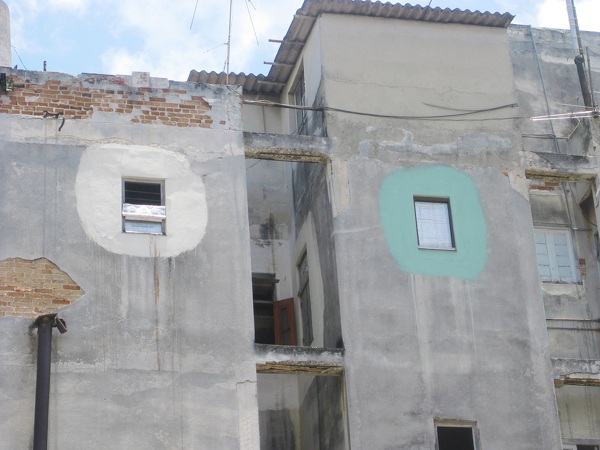Interview with Ernesto Oroza. By Alex Gil
(from Debates in the Digital Humanities 2016. University of Minnesota Press.)
The possibility of full and equal participation in the digital humanities has become the focus of much recent discussion around the diversity, definition, and scope of the field. Many of those who feel left out argue that a lack of funding or infrastructural support can pose an insurmountable barrier to digital humanities work. Some wait for a grant to hire developers to carry out their visions, others for a fully funded DH center at their universities to “support” them. In my estimate, the sense of exclusion based on access to infrastructure or funding comes from a failure to recognize that many individuals and groups in the United States and abroad do not have recourse to such infrastructure or funding and are already doing valuable work. We need not wait for the affordances of infrastructure. In fact, I would argue that scholars adopting an infrastructure prematurely, or receiving a large grant for a project, might keep themselves from acquiring an intimate knowledge of the digital technologies they seek to employ and, by extension, from the means of producing their own digital humanities knowledge.
Through my work with Global Outlook::Digital Humanities—a special-interest group of the Alliance for Digital Humanities Organization charged with breaking down the barriers that hinder communication and collaboration between scholars around the world—and more recently, the Group for Experimental Methods in the Humanities—dedicated to the rapid prototyping of speculative ideas in the humanities—I’ve come to view the barrier-to-participation question through a global lens. How can one work with computers in the humanities when one is situated in a place where the hardware is more than a decade old, or where the Internet connection is unreliable, if it exists at all? How can one “do digital humanities” when one earns a living outside of a cultural or academic institution, or when one must do one’s work hiding from the authorities? How can one begin to understand digital humanities knowledge produced under such conditions, whether practiced in the Global South or in that global south that de facto inhabits the North in its underserved and therefore marginalized populations?
My own answers to these questions have recently found an unlikely echo in the work of Cuban designer, architect, and theorist Ernesto Oroza. Oroza’s web project, Architecture of Necessity,1 presents a compelling example of digital curation, but his most important contribution to our conversations about diversity, definition, and scope—and by extension barrier-to-entry—comes from his work as an impromptu ethnographer of Cuba’s DIY culture. In this work, he not only describes the practices of a people who have embraced a hacker ethos, but also develops several concepts that are immediately applicable to the domain of digital humanities. One of these, “the architecture of necessity,” emerges from the example of Havana, a city that has grown according to an unpredictable logic, despite repeated attempts at planning, centralizing, and legislating. The digital humanities has also grown in the space between ambitious, well-funded, and meticulously planned projects and a bevy of prototypes and one-offs. The difference can be caricatured by comparing a robust digital collection built by libraries using Fedora and a quick-and-dirty digital archive built on Omeka by a professor and a graduate student. But in the end, the aggregate—the true shape of the field—begins to resemble the Havana that Oroza describes.
Another concept, the “Moral Modulor,” refers to an individual who finds a way to make his or her environment livable—literally—with very few resources at hand. These intrepid urbanites transform the world around them by ignoring certain codes and expectations and by appropriating what is readily available. The Moral Modulor cannot afford to wait for a government grant and yet must learn how to “make a window,” to borrow a phrase, in order to ensure survival. As opposed to Le Corbusier’s modulor,a physical scale based on human proportions to bridge discrepancies in measurement, the Moral Modulor provides us with a moral scale to bridge divergent measures. The proportion is need, and its basic units are survival and love. Imagine now if we were to build our new republic of letters, our digital humanities, using this ruler.
My favorite of Oroza’s concepts, “the technology of disobedience,” describes objects employed with complete disregard for their intended use: a tray used as an antenna, a clothes dryer used as a house fan. A truly disobedient technologist is never happy with a black box. The black box exists to be opened and tinkered with, or used for a purpose not found in the manual. As a graduate student, I once used the diff algorithm to help me detect transpositions in texts, by simply dumping every longest common subsequence2 into a table and rerunning the algorithm. I called it “the poor man’s fuzzy matching,” for lack of a better term. At the time, I didn’t have the conceptual framework to realize that I was engaged in an act of technological disobedience!
In the following interview with Oroza, I try to tease out some of his ideas so as to introduce his thinking for a digital humanities audience, while at the same time not losing sight of the particular geopolitical situation that gave rise to his work. I hope that readers can extrapolate from our conversation and begin to answer questions of need, affordance, and purpose for their own projects, whether beginner or advanced. It is also my hope that, in this glimpse of the Cuban DIY scene, readers will be prompted to consider how their DH work may connect to projects at the intersection of computing and the humanities that are rooted in other communities and environments.
interview here: http://dhdebates.gc.cuny.edu/debates/text/67
